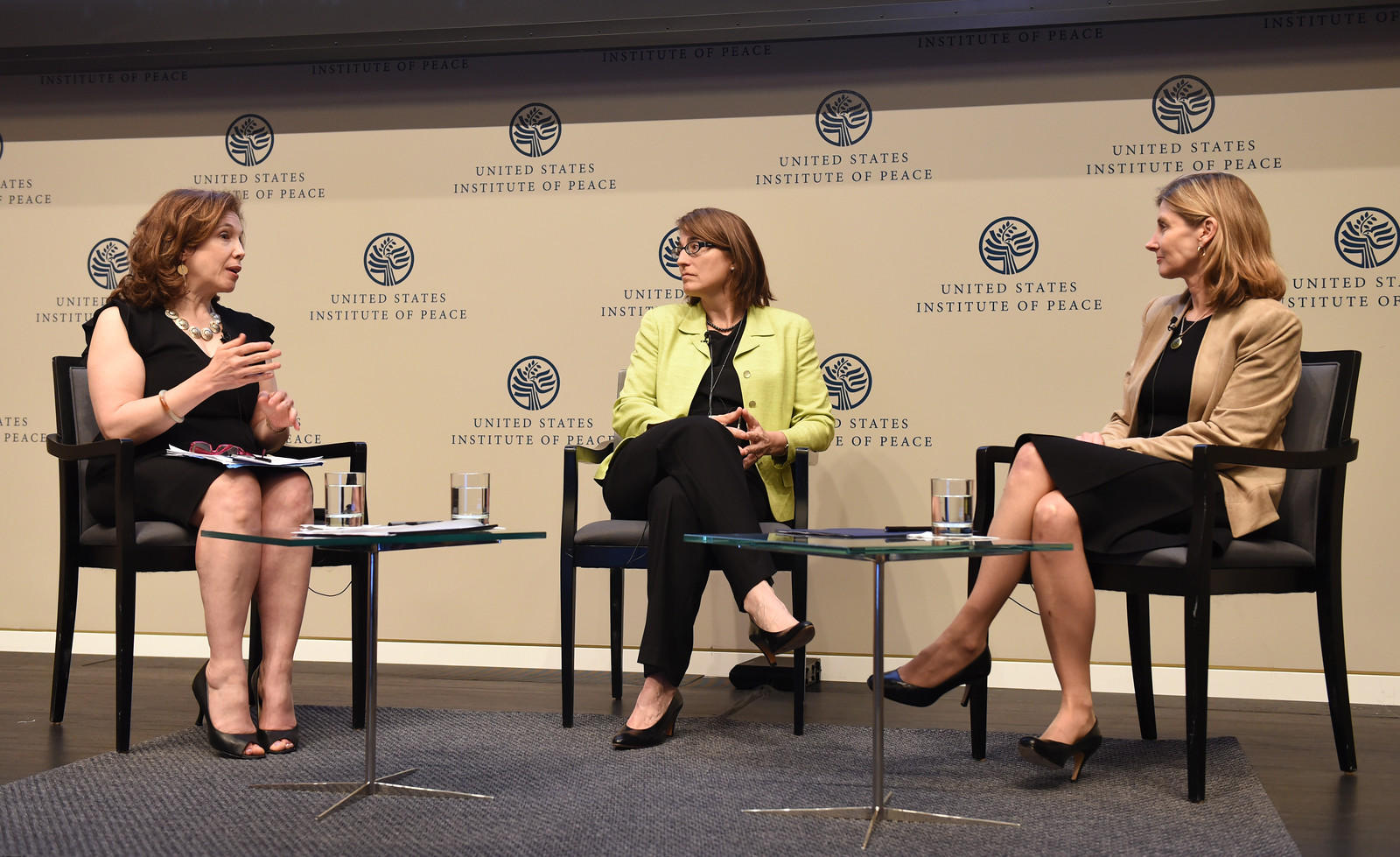Peacebuilding and Democracy in a Turbulent World
Read the Event CoverageAround the globe, the struggle between civil society voices and government repression is giving rise to violence, extremism and toxic politics. Professionals in peacebuilding and in governance/democracy recognize the need to work together on issues of governance, legitimacy, fragility and disenfranchisement that underlie many violent conflicts.

On May 13, the U.S. Institute of Peace and the Alliance for Peacebuilding hosted the first day of the 2015 AfP Annual Conference. The AfP conference, "Peacebuilding and Democracy in a Turbulent World," brought together those who work in peacebuilding with leading policymakers, members of the military, private-sector professionals and civil society representatives to help build bridges in both theory and practice. From repression of civil society in Russia to the spread of violent extremism in the Middle East, the conference highlighted the impact of social movements on peace and democracy. Continue the conversation on Twitter with #AfPeace2015.
Please see the final agenda.
Speakers
- Sarah Sewall
Under Secretary for Civilian Security, Democracy and Human Rights, U.S. Department of State - Melanie Greenberg
President and CEO, Alliance for Peacebuilding - Nancy Lindborg
President, U.S. Institute of Peace




